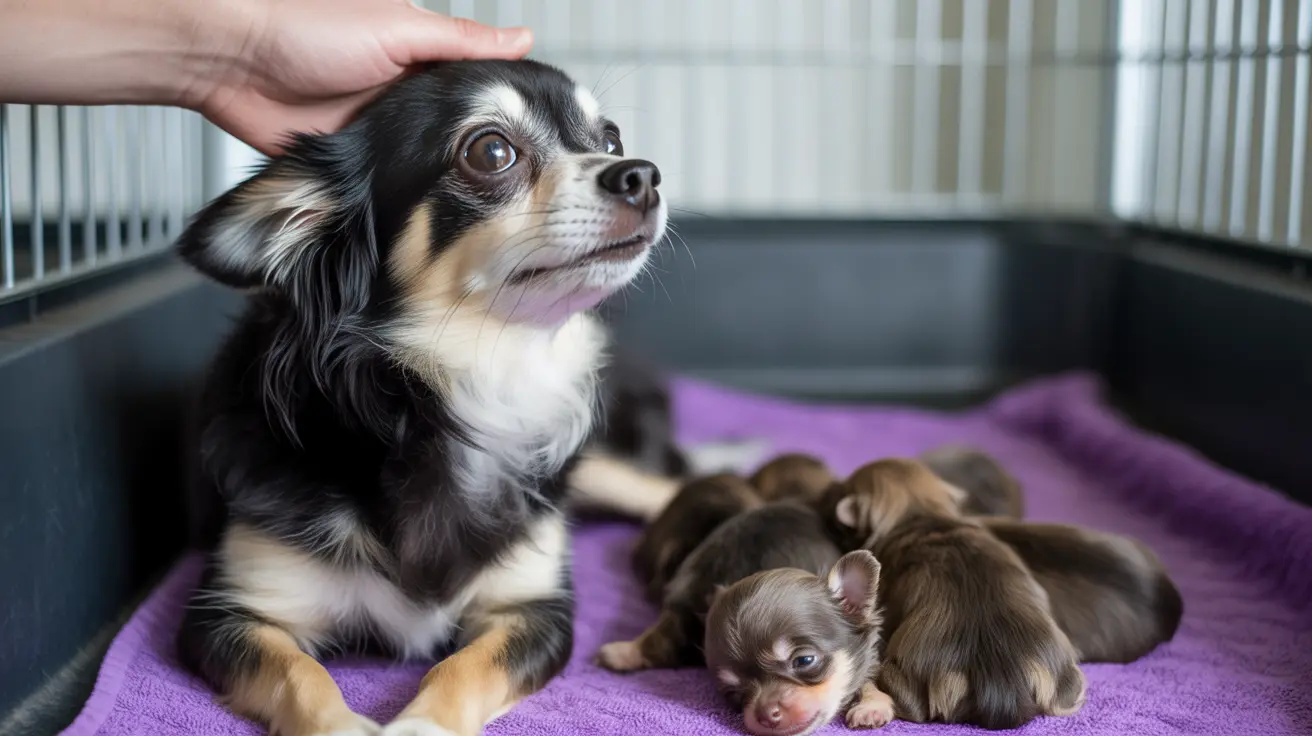A heartbreaking situation has emerged in New Hampshire as foster care for pregnant animals New Hampshire faces unprecedented restrictions under state enforcement. Teresa Paradis, who runs an animal rescue in Chichester, recently encountered a pregnant Chihuahua named Miss Bell whose story highlights a growing crisis affecting vulnerable animals across the state.
Miss Bell's journey from homelessness to rescue illustrates the complex challenges facing both pet owners and animal welfare organizations. After her owner became homeless following a recent separation, the pair moved from friend's homes to a hotel in Hooksett before finally arriving at Paradis's rescue facility. When Paradis examined the frail Chihuahua, she discovered the concerning reality that many pregnant animals now face—limited options for proper care and nurturing environments.
Understanding New Hampshire's Current Foster Animal Medical Rehabilitation Challenges
The enforcement of New Hampshire animal welfare laws has created an unexpected barrier for organizations trying to help pregnant and nursing animals. Traditional foster care programs, which have long provided intimate, home-based environments for expectant and new mothers, are now facing regulatory hurdles that leave many wondering about the future of animal rescue efforts in the state.
Foster families have historically played a crucial role in caring for pregnant animals because they can provide the quiet, stress-free environments that expectant mothers need. Unlike busy shelters, foster homes offer consistent caregivers, predictable routines, and the individual attention that can make the difference between successful and complicated pregnancies.
The Reality of Animal Shelter Foster Rules in Practice
Animal shelter foster rules have become increasingly complex, creating situations where well-meaning foster families find themselves unable to help the animals that need them most. The enforcement has particularly impacted foster pregnant cat New Hampshire and foster pregnant dog New Hampshire programs, leaving rescue organizations scrambling to find alternatives.
Shelters, while well-intentioned, often lack the resources to provide the same level of individualized care that foster homes can offer. The facility environment, with its constant activity and multiple animals, can create stress for pregnant animals that may impact both maternal and offspring health.
The Midnight Crisis: When Emergency Care Isn't Available
As rescue advocates point out, "Nobody is at the shelter in the middle of the night"—a stark reality that underscores the importance of foster care. Pregnant animals don't follow business hours when it comes to labor complications, and having dedicated foster families available around the clock has traditionally been a lifeline for both mothers and their babies.
Impact on New Hampshire No-Kill Shelter Operations
The restrictions have created significant challenges for New Hampshire no-kill shelter operations, which rely heavily on foster networks to manage capacity while providing appropriate care for vulnerable populations. Without adequate foster placement options for pregnant animals, these facilities face difficult decisions about resource allocation and care standards.
Animal rescue foster programs across the state are adapting by focusing on other populations they can legally serve, but this shift leaves a critical gap in care for expectant and nursing mothers. The ripple effect extends beyond individual animals to impact entire communities' animal welfare infrastructure.
Moving Forward: Balancing Regulation with Compassion
While regulatory oversight serves important purposes in ensuring animal welfare standards, the current situation highlights the need for balanced approaches that don't inadvertently harm the animals they're meant to protect. Rescue organizations and foster families continue to advocate for solutions that maintain safety standards while preserving the vital role of home-based care for pregnant animals.
The story of Miss Bell and countless other pregnant animals in similar situations serves as a reminder that effective animal welfare requires collaboration between regulatory agencies, rescue organizations, and dedicated foster families willing to open their homes to animals in need.
Frequently Asked Questions
- Why can't pregnant animals be fostered in New Hampshire anymore?
Current state enforcement of animal welfare regulations has created barriers for foster families wanting to care for pregnant animals, though the specific legal restrictions limit traditional foster care options that have historically served this vulnerable population.
- What are the risks to pregnant and nursing animals if they can't go to foster homes?
Pregnant and nursing animals may face increased stress in shelter environments, reduced individual attention during critical periods, and limited availability of around-the-clock monitoring that foster homes typically provide during labor and early nursing stages.
- Can shelters provide the same level of care as foster homes for pregnant pets?
While shelters have veterinary resources and professional staff, they typically cannot match the quiet, low-stress environment and dedicated individual attention that foster homes provide, which are particularly important for pregnant and nursing animals.
- What should I do if I find a pregnant stray animal in New Hampshire?
Contact local animal control or established rescue organizations immediately. They can guide you through proper procedures and connect the animal with appropriate care resources within current regulatory frameworks.
The ongoing situation in New Hampshire serves as a critical reminder that animal welfare policy must balance regulatory compliance with practical compassion, ensuring that vulnerable animals like Miss Bell can access the care they desperately need.






